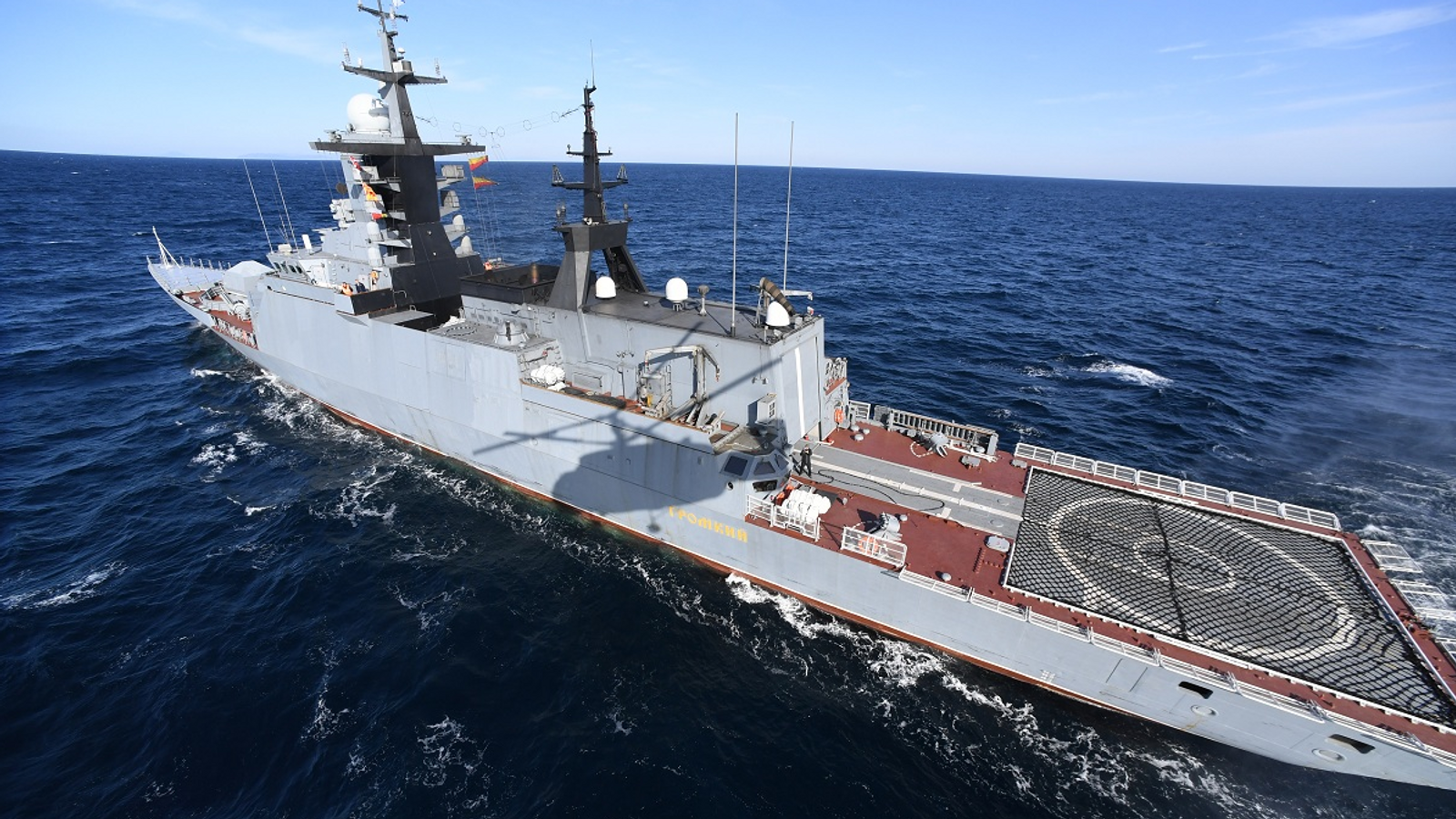“Unwanted” and “unwelcome”.
With Simon Coveney’s strong rebuke, Ireland has fired a verbal broadside at Russia – but Dublin knows it lacks the military muscle or legal grounds to do much else.
The Russian plans to undertake a major naval exercise in Irish-patrolled waters are seen as provocative, in the context of the Ukraine crisis. But under international law, they’re not doing anything wrong.
Please use Chrome browser for a more accessible video player
It’s understood the Russian exercise will take place approximately 150 miles (240km) off the County Cork coast.
This is outside Irish territorial waters, although inside the country’s Exclusive Economic Zone, which extends for 200 nautical miles. Ireland has responsibility for this maritime area and patrols it with naval ships and airplanes.
Mr Coveney admits that Russia “can of course undertake military exercises in international water, but the fact that they’re choosing to do it on the western borders of the EU, off the Irish coast, is something that in our view is simply not welcome and not wanted right now, particularly in the coming weeks.”
Ireland’s foreign minister also conceded that “we don’t have the power to prevent this happening”, and that is true in several aspects.
Dead man taken to Irish post office ‘in attempt to claim his pension’
Ashling Murphy: Murder of young school teacher has ‘united the nation in solidarity and revulsion’, Irish leader says
Ashling Murphy: Man held over murder of primary school teacher ‘no longer a suspect’
The row is again exposing the bald fact that Ireland is Europe’s weakest link when it comes to defence.
A neutral country and non-NATO member, with a defence spend that is among the very lowest anywhere in Europe, its ability to monitor foreign military activity offshore, let alone project a deterrent posture is extremely limited.
Please use Chrome browser for a more accessible video player
Just look at some of the numbers:
• The Irish Naval Service only has nine ships, and is in the middle of a staffing crisis. Crew numbers have dropped by 25% since 1998, and at times up to half the ships have been tied up due to staffing, COVID and mechanical issues. In November, it was reported that Ireland only had one ship ready to put to sea.
• The service does not possess any submarines or advanced underwater surveillance equipment.
• Ireland does not have any fighter jets. The Air Corps operates a total of eight Pilatus PC-9M aircraft. These are lightly-armed propeller-driven airplanes that are completely incapable of intercepting Russian military aircraft.
• Ireland effectively relies on Britain’s RAF to carry out those missions. In March 2020, RAF Typhoon jets were scrambled twice to monitor Russian Tupolev “Bear” bombers that had entered Irish-controlled airspace off the western coast.
• Ireland is the only country in the EU that doesn’t have a primary radar system. If planes switch off their transponders, which Russian jets routinely do, the Irish authorities simply cannot see them.
Read more: NATO sends extra ships and jets to eastern Europe
The Russians are of course fully aware of all of this. Military analysts in Ireland have repeatedly said that Moscow regards Ireland as the back door to Western Europe, in terms of air, naval and cyber security.
Ireland’s strengths lie elsewhere. It consistently punches above its weight diplomatically, within the European Union, and currently with a seat on the UN Security Council. Mr Coveney is briefing his European counterparts on the Russian exercise in Brussels today, and will hope to extract a unified EU response.
But ultimately he knows his country’s hands are tied. If the Russian bear wants to flex its claws in Ireland’s backyard, that’s exactly what will happen – and there’s not much the Irish can do about it.






















